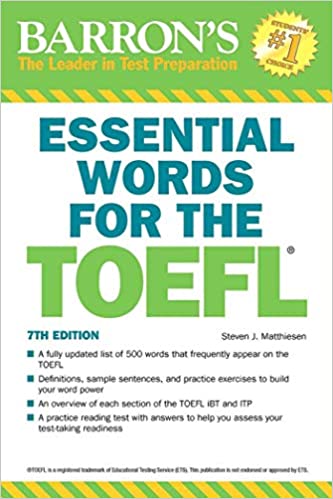It’s not that uncommon for a student’s TOEFL score to get “stuck.” By this, I mean that a student’s TOEFL performance can reach a certain score range, and then not really go above that score range, even with more practice. The worst is when this happens not just in practice, but on actual exams and exam retakes!
If this has ever happened to you, you know how frustrating it is. But here’s the good news: nothing can magically “stop” your TOEFL score in one place; it’s always possible to get unstuck. In this post, I’ll give you some tips that can help you move forward and improve on a seemingly frozen TOEFL score.
Focus on strategy, not skill or content
I’ve seen many students who get stuck in a certain TOEFL score range, even though their academic English is good—and is even improving! If your scores are stuck in one place, there’s a good chance your language skills are good enough to get you a better score. But you may need to improve your TOEFL test skills before you can see any more improvement to your scores.
In this case, you’ll want to start really paying attention to the answer explanations provided in TOEFL prep materials. Most TOEFL practice resources include explanations of the correct answer choices, and some also include explanations as to why other answer choices are wrong.
Answer explanations are always about test strategy. The best answer explanations out there act as mini-lessons in test strategy. This is great, because test strategy is something that can be improved very quickly with study, compared to other skills. Many students are surprised at just how much their “stuck” performance can improve and progress when they focus on these strategy tutorials.
And of course, answer explanations aren’t the only source of TOEFL strategy tutorials. Online TOEFL prep message boards are full of helpful community members who can help students better understand answer selection, test strategies, and so on. Many TOEFL books also contain sections on strategy, and the same goes for a lot of TOEFL prep websites. Just on this blog alone, there are tons of posts offering strategy advice for the four sections of the TOEFL.
Think deeply about your performance
A look at strategy is an important part of getting your scores unstuck. But to really get to the bottom of your problem and figure out how you can finally move forward and get higher scores, you’ll need to think even more deeply about your test performance.
Start journaling about your performance during your practice sessions. Make a record of the kinds of questions you’re getting right, and the kinds you’re getting wrong. Make note of the things that confuse you on the TOEFL, and also keep a record of the things that you feel confident about in TOEFL practice. This will help you identify the weaknesses you need to address, and the strengths you can build on! Often, completely undiscovered TOEFL problems and the solutions to those problems suddenly come into view when you think more carefully about your test prep in this way.
Get help from someone else
If you’re not already studying in an ESL program, getting access to a tutor does cost extra. But sometimes consulting with a tutor—even for just a few sessions—can help you move forward when you’re not sure how to improve your TOEFL score.
And your helper doesn’t necessarily need to be a paid tutor. You can often also get help and feedback from a friend or relative who is good at English. Help from peers is definitely possible too. You can get very valuable advice from a classmate, a study buddy, or a fellow TOEFL forum poster, as I mentioned above. When it comes to solving the mystery of a stuck TOEFL score, two heads are almost always better than one.






Leave a Reply